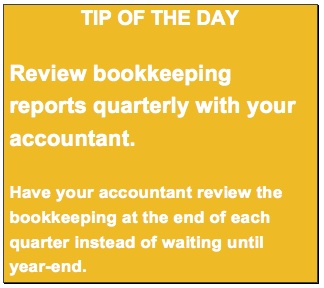
How to Choose a Bookkeeper (and Avoid Bookkeeping Nightmares)
Hiring an independent bookkeeper can be a great way to keep your records organized. Many can provide services at a lower hourly rate than your accounting professional, but price is not the only factor to consider.
Since bookkeepers are not subject to the same strict level of regulations and standards as professional accountants, it’s important to know what to look for when choosing one, aside from the price. After all, you wouldn’t necessarily shop for a sale on an important surgical operation, would you? Same goes for your finances.
7 questions to ask when hiring a bookkeeper
- Where did they learn their skills? Many colleges and universities offer accounting and bookkeeping courses—watch out for credentials from unaccredited or obscure learning institutions.
- Do they have recommendations or testimonials that show they can produce accurate reports and respond to emails in a timely manner?
- Will they regularly review posted income expenses with you and notify you if they see any inconsistent spending patterns?
- Are they experienced with the kinds of accounting software that can reduce your fees overall?
- Do they seem able to judge which matters they can handle, and which ones should be referred to an experienced accountant?
- Do they know your accountant and, if so, have a good working relationship with him or her?
- Do they have errors and omissions insurance?
If you’re already working with a bookkeeper, it’s important to know how to assess their performance and make sure things are on track. This is especially true if numbers and finances aren’t your field of expertise, as is the case for many clients.

How to spot a problem
- Review your bank statement and bookkeeping report. Does your bank statement match the bookkeeping? If not, has a bank reconciliation been prepared?
- Ask to see comparative reports showing your balance sheet and income statement. This will show the position of the company currently and at the same point a year ago. Look for inconsistencies in your income and expense categories. Can your bookkeeper walk you through those inconsistencies?
- Ask for a general ledger report showing the year-to-date transactions. If you are five months into your year, you should have five months of bank fees, phone bills and rent posted.
A good bookkeeper is worth their weight in gold
However, if there are issues they usually don’t come to light until your accountant starts to prepare your financial statements and tax return. You run the risk of incurring additional accounting fees to put the records in order, or filing late with penalties. Scheduling quarterly reviews gives you the opportunity to see how your business is performing and make proactive decisions that can improve your bottom line.
 Loren Nancke is a tax and accounting firm with deep roots—over 30 years in Western Canada—and an innovative approach to serving individuals and small businesses in BC and Alberta. Learn more about our tax consulting and accounting services for business owners.
Loren Nancke is a tax and accounting firm with deep roots—over 30 years in Western Canada—and an innovative approach to serving individuals and small businesses in BC and Alberta. Learn more about our tax consulting and accounting services for business owners.

